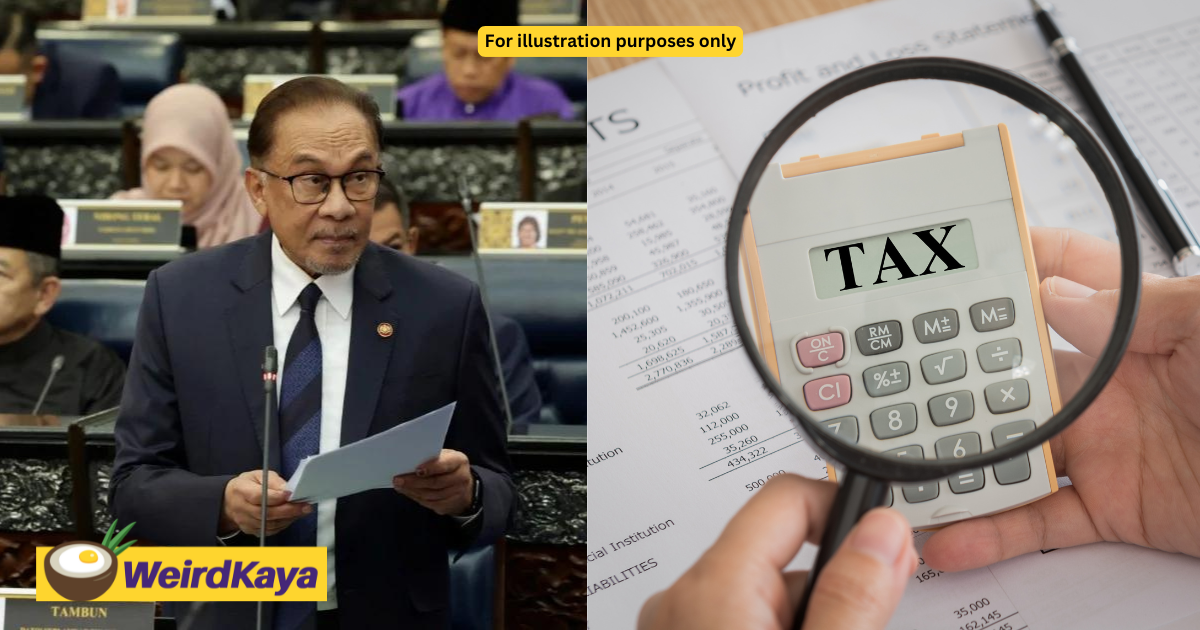In the upcoming 2025 Budget, the government is expected to implement five new taxes designed to promote healthier lifestyles, support sustainable living, and address economic inequality.
The proposed taxes, reported by Utusan Malaysia, include the unhealthy food tax, carbon pricing tax, inheritance tax, high-value goods tax (HVGT), and Artificial Intelligence (AI) tax.
Each of these taxes is strategically aimed at tackling pressing issues like obesity, climate change, and wealth disparity, while also fostering economic development, particularly in the technology sector.
1. Unhealthy Food Tax
This tax is designed to reduce the consumption of foods high in fat, sugar, and calories, such as fast food, snacks, and baked goods, which are contributing to the country’s rising obesity rates and lifestyle-related health issues.
The 2023 National Health and Morbidity Survey (NHMS) revealed that 54.4 percent of Malaysians are overweight, sparking concerns over the nation’s growing health burden.
- Goal: Combat obesity and encourage healthier dietary choices.
- Scope: Foods high in fat, sugar, and calories, complementing the existing sugar tax on sugary drinks.
- Impact: Revenue generated from this tax could be used to subsidize healthy food options and fund nutrition education programs in schools and communities.
Senior lecturer Dr. Farah Roslan from Universiti Sultan Zainal Abidin (UniSZA) emphasised the tax’s potential to decrease the consumption of unhealthy food, noting that other countries like Hungary and Mexico have successfully implemented similar measures.
2. Carbon Pricing Tax
As part of the nation’s commitment to tackling climate change, the carbon pricing tax aims to reduce greenhouse gas emissions and align with Malaysia’s goal of achieving net-zero carbon emissions by 2050.
- Goal: Support Malaysia’s green economy agenda and reduce carbon emissions.
- Mechanism: The tax will be implemented through measures such as carbon taxes or the Emission Trading System (ETS), which establishes a market for emissions reductions by capping emissions and allowing companies to sell any reductions achieved.
- Global context: As of last year, 75 carbon pricing mechanisms have been implemented worldwide, showcasing their effectiveness in reducing emissions while also generating revenue for green investments.
UKM’s Associate Professor Dr. Mustazar Mansur explained that this tax will create financial incentives for businesses to adopt greener practices, ensuring a steady price is placed on carbon emissions and encouraging industries to reduce their carbon footprint.
3. Inheritance Tax
The inheritance tax is proposed as a way to curb the accumulation of unproductive wealth within families, with the aim of reducing wealth inequality across the population.
- Goal: Prevent the concentration of wealth within a small segment of the population and reduce inequality.
- Impact: Wealth that might otherwise be passed down without contributing to the economy will be subject to taxation, which could be redistributed to fund public services or economic initiatives aimed at leveling wealth disparity.
4. High-Value Goods Tax (HVGT)
Targeting high-income individuals, the HVGT will focus on luxury items and services that typically fall into the domain of wealthier Malaysians.
- Goal: Generate revenue from the sale of luxury goods and reduce wealth inequality.
- Scope: Luxury items such as expensive jewelry, designer products, high-end vehicles, and other high-value goods will be taxed.
- Impact: By imposing this tax on luxury purchases, the government seeks to create a more balanced economy by redistributing the wealth generated from luxury consumption.
This tax is also seen as a way to address Malaysia’s wealth gap, ensuring that those who can afford luxury goods contribute a fair share to the nation’s economic development.
5. Artificial Intelligence (AI) Tax
Recognizing the importance of technological advancements for economic growth, the AI tax is designed to support the development and growth of high-tech industries in Malaysia.
- Goal: Foster innovation and growth in high-tech industries, particularly AI, to boost Malaysia’s economic development.
- Impact: This tax aims to create a financial framework that encourages the development of artificial intelligence technologies, ensuring Malaysia remains competitive in the global digital economy.
The AI tax is expected to provide both financial resources and regulatory support to industries focused on AI development, positioning Malaysia as a leader in this fast-growing sector.
Expert opinions on the new taxes
Health focus
Dr. Farah Roslan from UniSZA emphasised that the unhealthy food tax will go beyond sugary drinks and cover a wider range of unhealthy foods.
“This tax broadens its scope to include foods high in fat, sugar, and calories, such as fast food, snacks, and baked goods,” she said.
Dr. Farah also pointed out that the revenue could be directed toward public health initiatives, such as nutrition education in schools and communities.
Sustainability impact
Dr. Mustazar Mansur from UKM highlighted the carbon pricing tax as a key initiative to reduce greenhouse gas emissions, ensuring Malaysia meets its climate goals.
“Carbon pricing mechanisms like ETS and carbon taxes have already been successful in many countries, reducing emissions while generating revenue for green investments,” he explained.
A more progressive tax system
In addition to the specific taxes, analysts expect that the government will also focus on establishing a more progressive tax system overall. This includes the expansion of e-invoicing to improve revenue collection and ensure that taxes are being applied fairly and efficiently.



